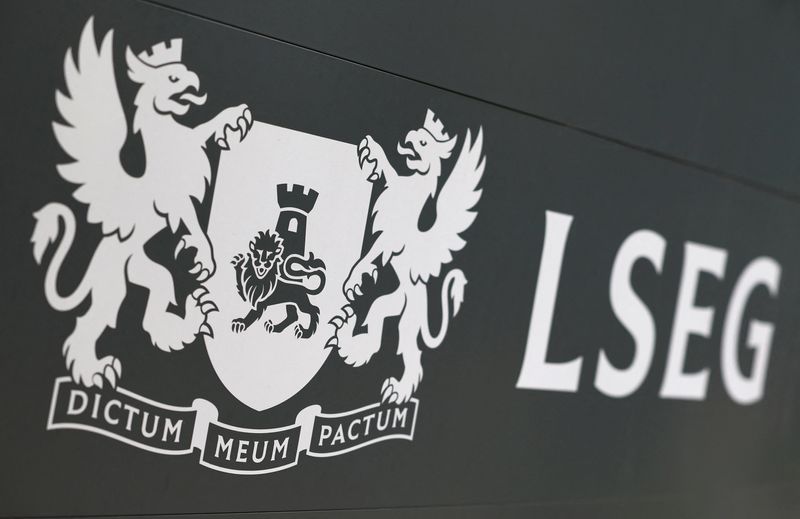By Khushi Singh
(Reuters) -UK’s main stock index ended lower on Friday, dragged down by personal goods and automobile shares, while investors assessed U.S. jobs report data to determine the extent of expected interest rate cuts by the Federal Reserve.
The blue-chip index FTSE 100 fell 0.7%, marking its sixth straight daily decline and lost 2.5% for the week, its steepest weekly loss since mid-January.
However, it has fared better than its benchmark European and U.S. peers on a weekly basis, with the STOXX 600 and the S&P 500 down 3.6% and over 4%, respectively.
The domestically focused mid-cap FTSE 250 dropped 1.3%, while on a weekly basis the index clocked its biggest fall in six weeks, shedding 2.8%.
The personal goods index tumbled 3.7% as the top sectoral decliner, trading at its lowest levels since December 2009, following a 5.2% sell-off in luxury retailer Burberry.
The index is also the biggest loser on a weekly basis, off 8.2%.
The automobiles and parts index followed with a 3.1% slip, registering its biggest one-day losses in over a month, while industrial metal miners fell 2.7% on lower copper prices as a stronger dollar and mixed U.S. jobs data added to concerns about global economic growth. [MET/L]
U.S. employment increased less than expected in August, but a drop in the jobless rate to 4.2% suggested an orderly labour market slowdown continued and probably did not warrant a big interest rate cut from the Federal Reserve this month.
CME Group’s (NASDAQ:CME) FedWatch Tool showed 73% of traders now anticipate the U.S. central bank will deliver a 25 basis point in its September meeting.
The European Central Bank is also poised to cut rates while the Bank of England is likely to hold this month.
Meanwhile, data showed British house prices rose last month at the fastest annual pace since late 2022, while a report showed the nation needs an additional one trillion pounds in investment in the next decade to grow the economy.

